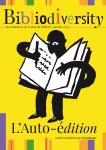On 23 October this year, the “Terres solidaires” reading Committee selected the next two titles to be published in the collection.
As every year, the committee, composed of book professionals and mediators in Africa, held a continent-wide virtual meeting. After several hours of exchanges and discussions it is, once again, two great African literature novels that were selected: Léonora Miano’s La saison de l’ombre (initially published by Grasset publishers in 2013, 2013 Fémina prize winner) and Hubert Haddad’s Palestine (initially published by Zulma publishers in 2007, 2008 Cinq Continents prize winner). These two novels will be available in Africa in 2015 and 2016 respectively, at a price adapted to local readers’ purchasing power, through an African publisher collective that will copublish these books.
Click here for more information on the other 9 titles published in the “Terres solidaires” collection, as well as on the collection’s publishers and countries where books are distributed.
The Alliance wishes to thank and acknowledge the exceptional work of the reading committee members:
• Saïd AFOULOUS (journalist, Morocco)
• Layla CHAOUNI (Le Fennec publishing, Morocco)
• Élisabeth DALDOUL (elyzad publishing, Tunisia)
• Yasmin ISSAKA-COUBAGEAT (Graines de Pensées publishing, Togo)
• Ludovic KIBORA (journalist, Burkina-Faso)
• Rachid MOKHTARI (journalist, Algeria)
• Jean-Claude NABA (Sankofa & Gurli publishing, Burkina Faso)
• François NKEME (Ifrikiya publishing, Cameroun)
• Serge POUTH (journalist, Cameroun)
• Felwine SARR (teacher, researcher and bookseller, Senegal)
Since its creation, “Terres solidaires” collection is supported by the International Orgainsation of the Francophonie.





















